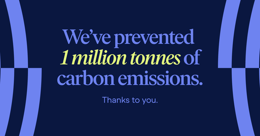
Recycling goes beyond those old Cola and baked bean cans. Learn more about what it means to recycle your tech, its environmental impact, and how you can help the planet.
Today’s class is a session on recycling. You know, you do it with lots of things. Old milk cartons, tin cans, old clothes, you might even have a composter if you’re fancy.
But you might not know how recycling works when it comes to your electronic devices. Whether it’s an old laptop, a throwaway phone, or a games console that’s gathering dust in your drawer, each item can be recycled, and we can walk you through how.
Read on to discover how recycling works for your unrepairable tech, one device at a time.
What is recycling?
Long story short, the definition of recycling is the same no matter what type of waste it is, whether that’s food waste, medical waste, materials, or more.
Here, we’re talking about electronic waste – or e-waste for short. This term refers to any unwanted, nonfunctional, or obsolete electronic device that can no longer be reused. So, what can be recycled? Remember, recycling and repair/refurbishment are not the same thing.
The keyword here is nonfunctional. If a device is too unworkable to repair or reuse, recycling is the last step in the chain. Unrepairable devices can get a new lease of life by being broken down and extracting their raw materials.
This includes things like glass, metal, plastic, and even precious materials like gold, silver, palladium, and copper, which you can find in circuit boards and wires. These raw materials can be sold and used in other things – new plastic cases for electronics, metals in circuit boards, car batteries, and many more.
How the recycling process affects the environment
Here’s a wild statistic: if you had 1 ton of iPhones sitting around, ready to be recycled – besides making for a great party story – that ton of iPhones would be holding onto 300 times more gold than a ton of gold ore, and 6.5 times more silver than a ton of silver ore. Recycling means these raw materials can be sold for something new, helping the economy in the process.
It also means we can avoid loading our trash on other communities internationally. The latest Global E-Waste Monitor, which tracks e-waste around the world, states that in 2022, an approximate 18 billion kilograms of e-waste was estimated to be handled in low- and lower-middle-income countries with no developed e-waste management infrastructure. Most of that trash isn’t the product of the countries in question, it’s often sent from first-world countries to the third world. When we safely dispose of our unrepairable devices through specialized e-waste collection schemes, it reduces the chance of any hazardous material sitting in landfills and waste dumps abroad or becoming the burden of developing regions.
Still, global e-waste recycling measures are not yet perfect. Until we’re able to tackle the problem of informal e-waste recycling measures, improperly recycled waste will continue to be a nightmare for the environment, polluting recipient areas with chemicals like lead and mercury, harming workers, and creating unsafe soil and water conditions. That’s not to mention the costs of recycling and raw material extraction itself. Safely extracting raw materials from devices is a highly labor-intensive, costly and energy-consuming process, often producing further greenhouse gases whilst underway.
Refurbish before you recycle
Just because your device is a few years old, or the battery is waning doesn’t mean it’s unrepairable.
Here at Back Market, we encourage people to make the most of what they have. Could you upgrade the hardware, take it for a fix, or replace the battery? Brands like Apple have their own in-house repair services, while Samsung also has dedicated advice on the best places to book a phone repair. You might be able to extend the life of your device with a little bit of expert tweaking, so consider taking it to your retailer or a reputable repair store before tossing it. You can also try an at-home repair if you’re savvy enough. If that doesn’t tickle your fancy, you can trade in any unwanted items for cash, putting some money in your pocket too.
If your device can’t be repaired or refurbished, time to go for recycling. E-waste can be collected at designated recycling centres that distribute material for safe processing, as well as some electronic retailers that offer collection schemes. The most fun part? Thinking about what that old laptop or iPhone might become in the future. Gold earrings? A silver watch? Or even reused in another device? The possibilities are endless.














